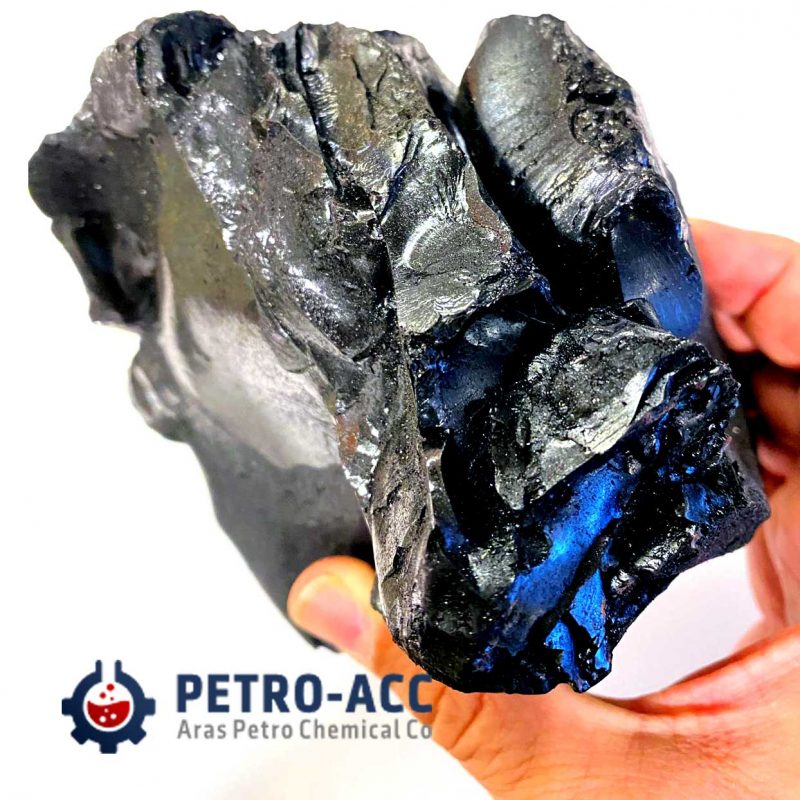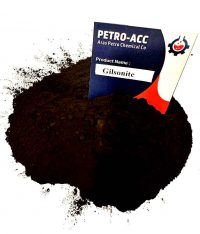Gilsonite uses in bitumen form many years ago, Gilsonite also known as uintaite, is a naturally occurring, solid hydrocarbon resin found in the lower layers of the earth. It has been used in a variety of applications, including as an additive in asphalt and bitumen.
Gilsonite is used in bitumen to improve its properties, such as increasing its stiffness and reducing its viscosity. This can result in improved durability, reduced rutting and cracking, and increased resistance to weathering and aging.
When used in bitumen, Gilsonite is typically ground into a fine powder and then blended with the bitumen during the production process. The amount of Gilsonite used can vary depending on the desired properties and the specific application.
Overall, the use of Gilsonite in bitumen can be an effective way to enhance the performance of asphalt and other road materials, leading to longer-lasting and more resilient road surfaces.
Gilsonite For Decreasing Bitumen Penetration
Gilsonite, a naturally occurring solid hydrocarbon, is often used as an additive in bitumen to modify its properties. One of the ways that Gilsonite can affect bitumen is by decreasing its penetration.
Penetration is a measure of the hardness of bitumen, and it refers to the distance in tenths of a millimeter that a standard needle penetrates into a bituminous sample under specified conditions of loading, time, and temperature. The lower the penetration value, the harder the bitumen.
When Gilsonite is added to bitumen, it can increase its viscosity and decrease its penetration. This is because Gilsonite is a hard, brittle material with a high melting point, and it can form a three-dimensional network structure within the bitumen matrix. This network structure can increase the stiffness and viscosity of the bitumen, which in turn decreases its penetration.
The degree to which Gilsonite decreases bitumen penetration will depend on a variety of factors, including the type and amount of Gilsonite, using the properties of the base bitumen, and the mixing and compaction conditions used during production. Generally speaking, the higher the Gilsonite content, the greater the decrease in penetration.
Overall, Gilsonite can be a useful additive for modifying the properties of bitumen, including its penetration. However, it is important to carefully consider the specific application and requirements of the project before using Gilsonite, as its effects on bitumen properties can be complex and dependent on a range of factors.
METHODS OF MIXING GILSONITE WITH BITUMEN
Gilsonite can be mixed with bitumen to improve the performance of bitumen in various applications. The process of mixing Gilsonite with bitumen is known as “Gilsonite Modification.”
Here are the general steps for mixing Gilsonite with bitumen:
- Heat the bitumen to the desired temperature based on the grade and application.
- Add the required amount of Gilsonite to the heated bitumen and stir until it dissolves completely.
- Continue stirring the mixture for a few minutes to ensure complete mixing.
- Test the modified bitumen for the desired properties and adjust the Gilsonite dosage as necessary.
It is essential to use the correct grade and amount of Gilsonite to achieve the desired performance of the modified bitumen. The optimal Gilsonite dosage depends on factors such as the application, desired performance, and properties of the base bitumen.









Leave A Comment